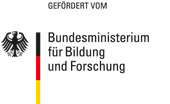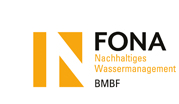Entry of biocides and their transformatio products into groundwater via urban stormwater infiltration systems MUTReWa | Publikation | Grundwasser, Regenwasser
Vorschau
Biocides are, inter alia, applied as preservatives on facades to prevent the growth of microorganisms. Their incomplete mineralization results in new compounds, so-called transformation products (TPs). Rain causes that both applied biocides and their TPs leach from facades with stormwater into the urban aquatic environment. This study is the first to investigate the introduction of the biocides Diuron, Terbutryn, and Octylisothiazolinone (OIT) and their TPs into the groundwater via urban stormwater infiltration systems. In this study, the TPs of these biocides were created by laboratory photolysis and elucidated using LC-HRMS. The results were then used to analyze TPs by LC-MS/MS in stormwater and groundwater samples, which were taken from an urban swale-trench system and from groundwater wells upgradient and downgradient of the infiltration system. A sprinkling experiment was conducted to evaluate facades as a contamination source. Biodegradation tests were conducted to determine bio-persistence of biocides and their TPs. Fourteen TPs were indentified under laboratory photolysis. TP-186, TP-210, and TP-256 of Terbutryn were hitherto unknown. Nine TPs were qualitatively detected in environmental water samples. Parent compounds, TP-219 of Diuron and TP-212, TP-214, and TP-226 of Terbutryn were detected at a maximum concentration of 140 ng L-1 during stormwater events. Concentrations in groundwater were considerably below German drinking water limits, but were higher in groundwater samples downgradient from the investigated swale-trench system than in those collected upgradient. Neither the biocides nor most of their TPs were readily biodegradable under simulated surface water conditions. The results show that entry of biocides and their TPs into groundwater is caused by infiltration of urban stormwater.
Zum Produkt
Verweis: https://www.sciencedirect.com/science/article/pii/S004313541830589X
Ansprechperson
Birte Hensen
T. 04131-6772836
M. birte.hensen@leuphana.de


 English
English



